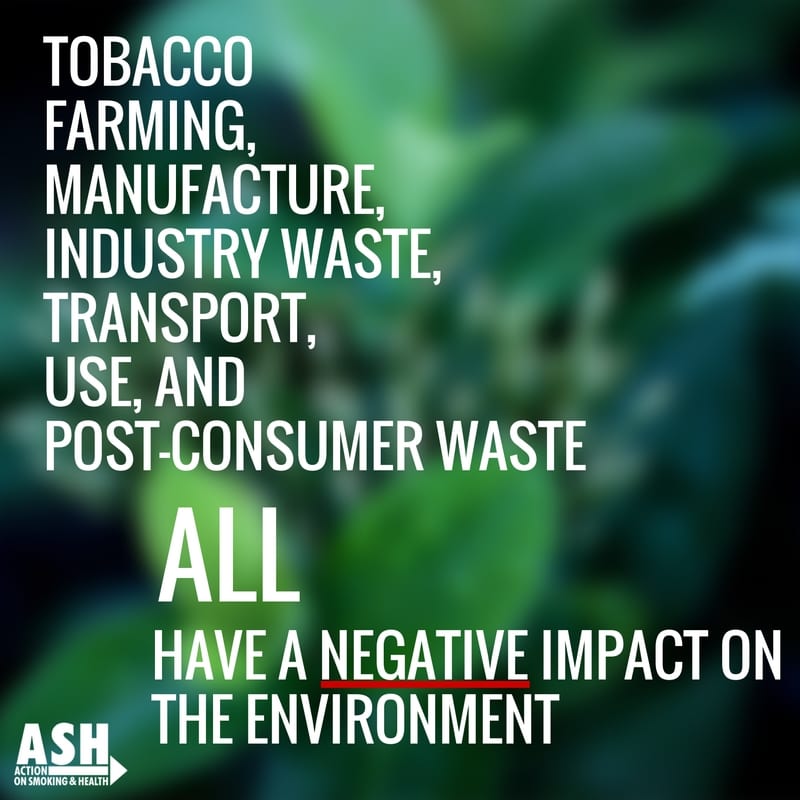When we think of tobacco, a lot of health issues immediately spring to mind – lung cancer, throat cancer, cardiovascular disease, tooth decay, asthma. But tobacco products also wreak havoc on our environment, a problem that is often overlooked. 
Tobacco is harmful to the environment throughout the product cycle – all the way from acquiring the materials to post-consumer waste. Tobacco farming, manufacture, industry waste, transport, use, and post-consumer waste all have a negative impact on the environment; all for a product that is deadly and has no benefit to society.
Some of the many harms in the life cycle of tobacco include:
• According to WHO, 5% of global deforestation is due to tobacco farming- 900,000 acres a year
• Tobacco growing is dependent on chemical inputs like fertilizer and pesticide, which causes soil degradation and water pollution, and can have negative health impacts on laborers.
• Over a million pounds of toxic chemicals were released by tobacco product manufacturing facilities in a single year. The top five chemicals released were ammonia, nicotine, hydrochloric acid, methanol, and nitrate compounds.
• Smokers litter cigarette butts rather than disposing of them properly 65% of the time, which results in approximately 845,000 tons (1.69 BILLION pounds) of cigarette butts as toxic trash each year.
There are numerous policy options that can be considered to combat the negative impact of tobacco on the environment.
Implement best practice policies from the WHO Framework Convention on Tobacco Control (FCTC)
The global tobacco treaty includes an Article (number 18) which addresses tobacco and the environment. Parties are bound to have “due regard” for the environment in their tobacco control policies. This Article has largely been ignored by the Parties, but should be brought to the forefront of the tobacco control discussion going forward.
Extended Producer Responsibility
These programs would require tobacco corporations to monitor their environmental impact, reduce waste, recycle and cleanup any waste. They could also require tobacco corporations to reimburse local communities for cleanup costs associated with post-consumer waste.
Product regulation
Countries, states or localities can pass laws that can help. For example, jurisdictions have considered legislation that bans filters, as well as taxes on cigarette butts.
Finally, a key step is public education. Many people – smokers, tobacco control advocates and the general public alike – don’t consider the environmental impact of tobacco. But with public education, many of these people could become passionate allies. Together, we can shine a light on this issue and protect our world from the toxic and hazardous impacts of tobacco.
Are you interested in this program? Read more about our next steps, and please consider donating here>








